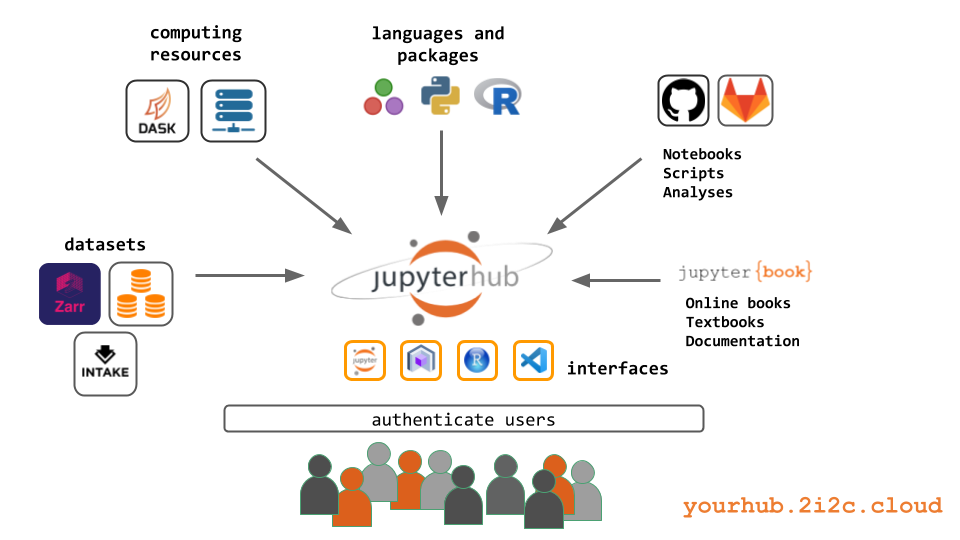Kinds of hubs
2i2c Hubs are extremely flexible and customizable, and can generally meet most use-cases in research and education. That said, the complexity of a hub will impact how much work it takes to both deploy and maintain.
2i2c broadly has two kinds of hubs that it offers for other communities.
Self-serve 2i2c hubs
These hubs provide a base environment with reasonable defaults, and are relatively easy to setup and configure for a straightforward use-case. They are ideal for use-cases where there are not very complex environment, computing, or data needs for a community. They are a great choice for getting familiar with using JupyterHub infrastructure in the cloud, as well as for doing working with a use-case that is very common, such as data science education. They are meant to serve a large collection of communities.
The 2i2c Hubs for All pilot is an example of these hubs in action.
Bespoke 2i2c hubs
These hubs are hand-tailored for your community. They start with a basic JupyterHub setup, and 2i2c will work with you to hand-craft the infrastructure, environment, etc to your needs. These are best-suited for larger or more diverse communities with more complex needs in their hub environment. For example, if you require access to authenticated data source in the cloud, scalable computing, or if you require your infrastructure to run on a particular vendor’s infrastructure.
If you’re interested in working with 2i2c to create a bespoke hub for your community, send us an email .
Research development hubs
These hubs are designed to drive new open source development in collaboration with a particular research or educational use-case. They tend to be more complex and tailored for a specific use-case, such as a research team with highly-specialized needs. In this case, 2i2c will act as a collaborator with you and your community to drive new development in interactive computing infrastructure in order to better suit your community’s needs, as well as those of the broader research and education communities. This often requires collaboratively writing grants or larger work plans.
If you’re interested in collaborating with 2i2c on a development-focused hub, send us an email .
